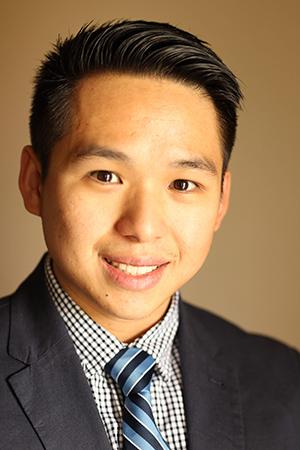
Before enrolling in the PhD program in Georgia Tech’s School of Chemical and Biomolecular Engineering (ChBE), Harry Tuazon would spend months at a time underwater as a nuclear submarine officer in the U.S. Navy.
After almost seven years of full-time military service, he said he decided to switch to a scientific career to pursue more creative approaches than are possible in the highly technical operation of a multi-billion-dollar submarine.
When Tuazon began the PhD program while continuing as a reservist (promoted to lieutenant commander in 2023), he knew he’d one day like to join the Defense Advanced Research Projects Agency (DARPA), a U.S. government agency that develops new technologies for the military.
And Tuazon (Bioengineering PhD 2024) has reached that goal years earlier than he thought possible, making history as the first Georgia Tech alum to win a DARPA Innovation Fellowship.
Solving Security Challenges
One of six early-career researchers selected for the 2025 cohort, Tuazon has joined a distinguished community of scientists and military service members tasked with managing high-risk, high-reward research projects funded through DARPA’s Advanced Research Concepts Initiative.
During his two-year fellowship, Tuazon will receive $125,000 annually to explore groundbreaking solutions to national security challenges.
"DARPA thrives on encouraging it's scientists to turn what once seemed like science fiction into groundbreaking reality,” said Tuazon, who is also serving part-time as a science and technology officer in the Office of Naval Research. “The DARPA fellowship is a kind of a choose-your-own-adventure program.”
Robotics Research
While he just started the fellowship in January 2025 and doesn’t know yet what he’ll win approval to explore, he said he’d be interested in expanding upon his PhD research in the swarm robotics of physically entangled aquatic worms.
When he joined Associate Professor Saad Bhamla’s Lab in 2020, he wasn’t sure about the prospect of working with worms. But he became fascinated with how their flexible movements and collective swarming abilities could be models for future robotic applications involving shape-shifting and self-assembly.
“Initially I wasn’t interested in playing with a lot of squirmy things, but Dr. Bhamla gave me the freedom to pursue projects how I wanted to in his curiosity-driven lab,” Tuazon said.
Academic Achievements
During his studies at Tech, Tuazon published papers in Science, Soft Matter, and Integrative and Comparative Biology. His passion for photography has led to publication featuring his scientific images, including on journal covers.
In 2023, Tuazon won the Emerging Soft Matter Excellence Award at an American Physical Society Meeting for his research on active living polymers studying collective worm buoys.
A native of the Philippines who moved to the United States when he was 11, Tuazon earned his BS in chemical engineering at the University of South Florida.
After completing his DARPA fellowship, Tuazon is interested in pursuing a career in academia.
Mentoring Others
As one of the older students in the ChBE PhD program, given his years of military service between undergraduate and graduate studies, Tuazon said he enjoyed taking on a mentorship role in the Bhamla Lab.
“The way I mentor is through an independent approach,” he said. “I don’t like telling people how to do things step by step. Switching to that independent mindset can be challenging for a lot of students. But I encourage them to be creative and curious about what they’re doing.”